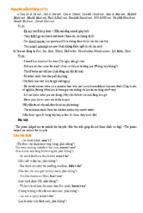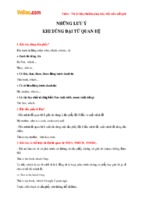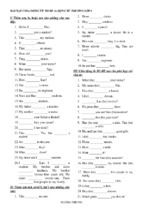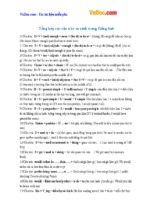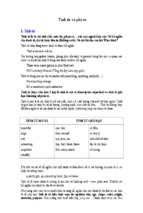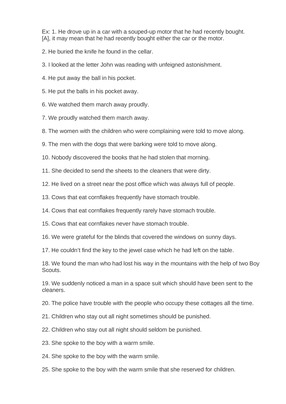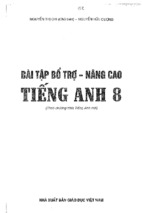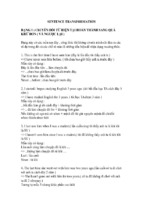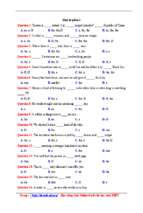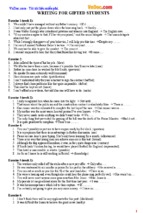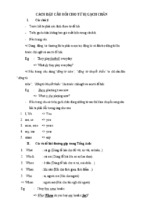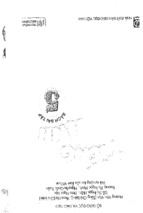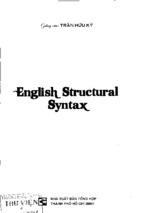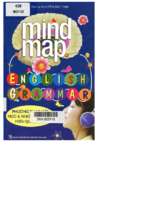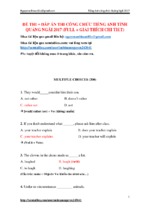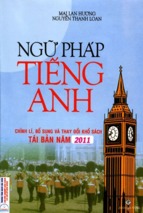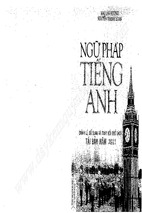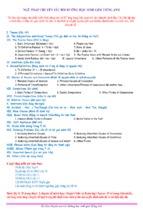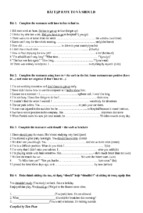SS3:lId .x.LISlI3:AINIL
crnorro
OXFORD
UNIVE RSITY PRESS
Great Clarendon Street, Oxford, OX2 6DP, United Kingdom
Oxford University Press is a department of the University of Oxford.
It furthers the University's objective of excellence in research, scholarship,
and education by publishing worldwide. Oxford is a registered trade
mark of Oxford University Press in the UK and in certain other countries
© Oxford University Press 2011
The moral rights of the author have been asserted
First published in 2011
2016 2015 2014 2013
10 9 8 7 6 5 4
No unauthorized photocopying
All rights reserved. No part of this publication may be reproduced, stored
in a retrieval system, or transmitted, in any form or by any means, without
the prior permission in writing of Oxford University Press, or as expressly
permitted by law, by licence or under terms agreed with the appropriate
reprographics rights organization. Enquiries concerning reproduction outside
the scope of the above should be sent to the ELT Rights Department, Oxford
University Press, at the address above
You must not circulate this work in any other form and you must impose
this same condition on any acquirer
Links to third party websites are provided by Oxford in good faith and for
information only. Oxford disclaims any responsibility for the materials
contained in any third party website referenced in this work
ISBN : 9780194430388 (Student's Book)
ISBN: 9780194430395 (Audio CD)
ISBN: 9780194430401 (Pack: Student's Book and Audio CD)
Printed in China
This book is printed on paper from certified and well-managed sources
AC KNOWLEDGEMENTS
niustrations (intenor and cover): Judy Brown
The publisher would like to thank the following for their kind permission to reproduce
photographs: Alamy Images pp.5 (whale 's tail/tbkmedia.de), 30 (goggles/
D. Hurst), 30 (football/Alex Segre), 61 (electric car/lain Masterton), 69 (goggles/
D. Hurst), 69 (football/Alex Segre), 69 (cutlery/Gaba/G&B Images), 69 (cycling
helmet/Profimedia International s.r.o.) , 88 (chocolate factOly/Patrick Syww);
Corbis pp.1 7 (Red Sea/Arnaud Chicurel{Terra), 27 (BU1] Khalifa, dubai/Jose
Fu ste Raga), 103 (kangaroo/Frans Lanting{Terra); Getty Images pp.15 (Yankee
StadiumlJake Rajs/Stone), 17 (Geneva/EyesWideOpen) , 58 (Istanbul/Jeremy
Walker/Photographer's Choice); Newspix pp. 79 (School of the Air girl student/
Toby Zerna), 79 (student of School of the Air/) ; Oxford University Press
pp.13 (The Statue ofLiberty/Photodisc), 13 (taxi/image l00), 16 (The Tower
ofLondon/lmage Source), 17 (Big Ben/Jan Tadeusz), 17 (The White House/
Photodisc) , 17 (desert/Corbis/Digital Stock), 17 (London/Digital Vision),
18 (Central Park/Fuse), 29 (planets/Photodisc) , 29 (Saturn/lngram), 30 (trainers/
Photodisc), 30 (Climbing rope/Photodisc), 30 (racket/Gareth Boden), 30 (golf
ball/Photodisc), 34 (New York cityscape/Photodisc), 34 (New York/Photodisc),
49 (The Eiffel Tower/Image Source), 49 (The Colosseum/Photodisc), 49 (Taj
Mahal/Digital Vision), 49 (The Tower of London/Photodisc), 49 (The Great
Wall of China/Photo disc), 49 (Pyramids/Digital Vision), 65 (Tokyo/Creatas),
65 (White Lotus Pagoda/Photodisc), 69 (trainers/Photodisc), 69 (mp3 player/
CreativeAct), 69 (iPhone/Jason Brindel Commercial), 69 (Vacuum cleaner/
Dennis Kitchen Studio, Inc.), 72 (climbing/Image Source), 79 (school bus/
Radius Images), 93 (Eilean Donan Castle/Photodisc), 94 (chemistry class/
Stockbroker); Photolibrary p.69 (notebooksfWhite)
Contents
1 The Bell family
Present simple and present continuous
4
2 Tom built a go-kart
Past simple; could for ability
8
3 Tom's flying to New York
Present continuous for future plans; a/an and the
12
4 We're going to London
The; to + base form for purpose
16
5 Jenny writes neatly
Adverbs of manner
20
--------~-
6 Who's the fastest?
Comparison of adjectives (1)
24
7 The most interesting planet
Comparison of adjectives (2); should
28
Revision 1 (units 1-7)
32
8 A lot of food
Expressing quantity; shall
36
9 Trig was playing football when ...
Past continuous; past continuous and past simple
40
Present perfect simple; just, already, yet
44
Present perfect simple; would like + verb
48
Who and what as subjects; word order
52
13 I've had it for five months
For and since; present perfect or past simple?
56
14 Will I be rich?
Future with will; may/might for possibility
60
10 I've just finished it
-----
11 Have you been to China?
- - -----
12 What caused the accident?
Revision 2 (units 8-14)
64
15 You used to like fishing
16 The boy who broke his leg
17 Jenny has to go
-----
The -ing form; used to
68
Relative pronouns
-----
72
Have to
76
Prepositions of place and movement;
18 Trig is too fat
too and enough
80
-- - ---
19 Nobody knows
Something, nobody etc.; verbs of sensation
20 How is chocolate made?
21 If the weather's nice ...
--
---- ----
22 Trig has been packing
84
The passive
88
Zero and type 1 conditionals
92
Present perfect continuous; reflexive pronouns
96
Revision 3 (units 15-22)
100
Words to learn
104
Verb forms
108
Spelling
110
~
Q
Vocabulary exercise
Speaking activity
~ Go to www.oup.com/eltltrig
Young Learners English Test practice
&l
Go to www.oup.com/eltlteacher/trig
Present simple and present continuous
T 's is ick Bell, his sister Jenny, his parents and
:' e'r dog Chip. Nick is thirteen years old. He goes
~o
:::lark Street School in Merton. He's got brown
~ o"r.
He can swim and play football, but he can't
GO maths or French . He likes sport and music. He
doesn't like doing the washing-up. His best friend
's To m, and Jenny's best friend is Amanda. Nick,
Jenny and their parents are all smiling because
Grammar lesson
Present simple
Look at the verb tables on page 108 for
the present simple of be, have got and
like. Look at page 110 for information on
spelling with he, she and it.
We use the present simple
Tom is taking a photograph .
1 for repeated actions, especially with
words like always, often, never, every
day:
Nick and Jenny always walk to school.
Trig learns five words every day.
2 for facts which do not change:
Nick's got brown hair and brown eyes.
3 with verbs such as like, love, hate,
dislike:
Nick doesn't like going to school.
Present continuous
We form the present continuous with be +
the -ing form of the verb. Look at the verb
tables on page 108 and the information
on spelling on page 110.
We use the present continuous for
something that is happening at the
moment of speaking (now, at the
moment).
And do you remember me? I'm Trig.
I come from Triglon. Nick and Jenny
are my friends. I'm learning Eng lish.
I learn five words every day.
Tom's taking 0 photograph.
They are all smiling for Tom .
Trig's reading his English book.
Words to L~.a ~~ . ~ »)) 3
It
",0
badge protect danger
pair breathe set
whale
1
Complete the text. Use the present simple
of be, go, have got, can and like, in the
affirmative (v') or the negative (X).
~
3
Complete the conversation. Use the
present simple form of the words in
brackets.
Jenny ~ twelve years old. She
(v') to Park Street School.
1
She 2
(v') blond hair and blue
eyes. She
but she
(X) play football. She
4
(v') music, reading and animals.
5
She
(v') play the piano,
3
(X) football or rain .
6
Chip 7
Jenny Look, Nick. Here's an interesting
(v') five years old. He
8
9
(v') bones. He 10
articl e about blue whales.
(v') long ears and a short tail. He
(X)
ick
(blu e whal es, live)?
Fluff, the neighbou rs' cat.
2 Jenny is telling Nick about pandas. Circle
Jenny Th ey ~
look<0~ like my old
teddy bear. He 1 has got/have got
Do you 2 know/knows where pandas
3
Nick
4
And how much 3_ _ _ _ _ _ __
_ _ __ (a blue whale, w eigh)?
Jenny About 200 tons. They
4 _ _ __
(swim) 20 to 50 kilometres an hour.
live/lives?
Jenny Here it
(grow) to 30 metres.
2
black and white fur.
Nick
(live) for 80 to 90
years . It says here that a blue whale
the correct words.
Jenny This panda
Great. How long do blue whales live?
They 5
say/says that they
(live) in the sea,
5
live/lives in China. An adult panda
but they
6
weigh/weighs 125 kilos.
very cold water. They sometimes
What do pandas 7 eats/eat?
7
Elephants?
Nick
(swim) in groups, but
they 8
Jenny Of course they 8 don't eat/not eat
elephants! They
Nick
(not, like)
6
9
eat/eats leaves.
Well, I 10 prefer/prefers pizza .
(not, live) in la r~ E
groups all the time.
Nick
Tell me how a whale
9 _ _ __
(breathe).
Jenny Well, it 10
(blow)
v,.'c "= 1' " . C:-
into the air.
U.. it!
4
Look at the pictures and answer the
questions. Use the present continuous.
5
Circle the correct words.
Amanda Where's Trig?
Jenny
He sits€i'tt09 over there in the
chair.
r.
Amanda What 1 is he doing/does he do ?
2
Does he watchlIs he watching
television?
Jenny
No, he
4
3
doesn't/isn't. He
is reading/reads .
Amanda What 5 does he read/is he reading?
Jenny
He
6
likes/is liking looking at
animal books, but he
7
is reading/
reads a book about cooking now.
He
./
8
is loving/loves food . He
9
eats/
is eating cakes and chocolate
every day.
Amanda But the book's upside down!
Jenny
~ >e gOIl and Cathy cycling?
No. they arel1 t. They're dOHciHg.
f
1 Is :/ ::: ..ol ing?
2
re
G~'G
and George cycling?
4 Is Ale S:. · ~~ · ~c?
5 Are L0
6 Is Sita cli
Unit 1
' ?
." e :.Cl Ing.
.~;;?
Yes, it is. Trig 10 is always reading/
always reads books upside down.
6
Complete the text. Use the present simple
or the present continuous.
7~
I
Write the words in the correct lists.
~
sailing waitress cl im b"ng
dentist supermarket camping farmer
wardrobe bed theatre cycling
post office vet drawers bookshelf
skateboarding teacher table library
Places in town
Sports and activities
hospital
Nick and Jenny ~ (get up)
early on weekdays. They usually
(walk) to school
1
w ith Amanda and Tom . But today is
My bedroom
Jobs
Sunday. They 2_ _ _ _ __ _
(not, get up) early on Sundays. Now Mum
(set) the table for
3
breakfast and Jenny
4 _ _ _ _ _ __
(help) . She 5
toast. Nick and Trig
(make)
6_ _ _ _ _ __
8Q
(still, sleep). Trig 7_ _ _ _ _ __
Partner activity
Ask your partner what he or she usually
does at the weekend" Take turns to ask
and answer questions.
(not, get up) before eleven o'clock.
Ch ip is in the garden. He
Student 1 00 you go to the cinema on
(go) in the garden
3
every morning - if it
9 _ _ __
_ __
Saturday?
_
Student 2 No, I don't. I watch television
on Saturday. What do you do
on Sunday?
ot, rain). He 10_ _ _ _ _ _ __
ase) the neighbours' cat now, but he
-ever 11
(catch) her.
Student 1 I usually get up late .
Sometimes I ...
C, Sun day afternoon Nick and Jenny
D~e n 12
(go) to the
:::: rr< with Chip. He 13 _ _ _ _ _ _ __
_"e to chase the birds, but he never
_ _ ______ (catch) them, either.
~ Visit Trig's website for more practice
&J TEACHERS: now down load the worKS-=-~-:
for this unit.
Past simple; could for ability
Mr Blo ke What did yo u do in the school holiday,
Grammar lesson
Nick?
Nick
I went to Spa in in August. I loved it. I also
played 0 lot of fo otball with Tom .
Mr Bloke And w hat did you do, Tom?
I played football with Nick and I built
Tom
0
go-kart. I like building things. I could build
- ·ngs wh en I wa s seven years old.
Mr Bloke Did you play football, Adam?
Ado rn
'. ~ didn 't. I couldn't ploy. Tom 's go- kart
cra shed into me and broke my leg .
Past simple
Add ed or d to the base form of regular
verbs in the affirmative.
play - played, love - loved
I played football. I loved it.
Irregular verbs have a special form .
go - went, break - broke
I went to Spain. I built a go-kart.
(There is a list of some irregular verbs on
page 109.)
Use did not or didn't + base form for the
negative and did for the question form.
Use did and did not (didn't) in short
answers.
I didn't play football.
Did you play football? No, I didn't.
The form is the same for all persons (he,
she and it are not different).
We use the past simple for an action that
started and fin ished in the past, often with
a time expression.
"'
I went to Spain in August.
Could for ability
Could is the past form of can. We use
could or could not (couldn't) for ability (or
lack of ability) in the past.
After could we use the base form .
I could ride a bicycle when I was six.
Questions and short answers
Words to learn -4)>> 5
build
cras
meet
kid
Unit 2
'E:'
co
ory disco
rock
Could you play football? No, I couldn't.
Could Tom build a go-kart? Yes, he could.
1
Write the past simple forms in the correct
lists.
breaK
love
take
3
~ Nick and Jenny / go to Spain
.mrry
come give help lose
make run see smile stop
try watch work
Regular
Did Nick and Jenny go to Spain?
1 they / stay at a nice hotel
Irregular
carried
Write questions about Nick and Jenny's
holiday. Use the past simple.
broke
2 Dad / take any photos
3 Nick and Jenny / go to the disco
4 Jenny / vvin the swi mming compet iti on
5 \ ick / vHite c
2
Complete Jenny's holiday diary. Use the
past simple.
'-"
Saturday We arrived (arrive) late and were
~
(be) all hungry. Nice hotel! We 1
....... '--', I (have) dinner and
~ I Sunday
It
3
~ We 4
2
(go) to bed.
Write questions. Use the past simple and
the words in brackets.
~
It rained. (When?)
When did it rain?
1 They looked round the town . (When?)
(rain) this morning!
(stay) in the hotel. In the
2 Jenny wrote some postcards. (How many?)
afternoon it was warm and sunny. We
~
5
(look) round the town. Dad
6
I 7
~
th e evening . It 8
~ 1 9
(go) to the kids' disco in
(be) fun . We
4 Nick and Jenny went to the disco.
(When?)
(meet) some other English kids.
~
1--_.
Monday Il0
(write) six
~
po stcards. I 11
(win) the
I
3 Dad took some photos. (Where?)
(take) some photos. Nick and
~
I-" .~
i-c_.
I
4
h o !i Go~y o·G')'
5 Jenny won the swimming compet itio
(When?)
swim ming competition - brilliant!!! We
~ • -7
. ~.~
(see) a film in the evening.
Unit 2
5
Put the words in the correct order. Write
questions.
~
6
Complete the sentences. Use didn't and
the words in the box.
Nick and Jenny / go to Spain / Did / ?
break ..b.t:tt+d get
swim win write
Did Nick al1d Jel1l1Y go to Spail1?
~
crash
did / do in Spain / Nick and Jenny / What / ?
play
~ Adam didl1't build a go-kart.
What did Nick al1d Jel1l1Y do il1 Spail1?
go
1 Tom and Adam
1 Nick and Jenny / go to Spain / When / did / ?
to
Spain.
2 Adam
3 Tom
2 th ey / did / arrive / When / ?
sunburned.
his leg.
into Nick.
4 The go-kart
S Adam
3 tired and hungry / they / Were / ?
football.
6 Nick
7 Tom
4 did / rain / When / it / ?
a holiday diary.
a competition .
S Tom and Adam
In
the sea.
5
'ck and Jenny / take photos / Did / ?
6 - eJ
/
get sunburned / Did /?
7
Answer the questions with short answers,
then give some extra information. Use the
past simple.
~
7 ~-eJ
do / What / did / in the even ings / ?
Did you go to bed late last night?
No, I didl1't. I wel1t to bed at l1il1e o'clock.
1 Did you watch television last night?
8
JE~-./
c'"'d
ick / their holiday / Did / enjoy / ?
2 Did you do your homework yesterday?
3 Did your friend visit you yesterday?
9 To""'" I
.'/ ~E n
did / build a go-kart / ?
4 Did it rain last week?
10 Tom I
,:;;0 ~
Soain / Di d / ?
S Did you go to the cinema last weekend?
6 Did you help your parents last week?
I
Unit 2
8
What could Adam db? What couldn't he
do? Complete the sentences.
10 ~
Write the missing words. Use the
correct form.
When Adam broke his leg ...
~ In the school holidays Tom
~
He could lie on the sofa at home.
1 There was an accident with Tom 's go-kar.
~
He couldl1't play football.
and Adam
1 He
2 He
go sWimming.
4 He
use his computer.
5 He
ride his bicycle.
6 He
go skateboarding.
7 He
talk to his friends.
8 He
9
watch television.
3 He
\.
go out with his friends.
read comics.
~_I
1
211
@ II
his leg.
2 When Jenny was in Spain, she wrote a
3 Jenny is a good swimmer. She won a
swimming _ _ _ _ .
4 In the evening, Jenny and Nick went to
the
in the hotel.
5 In the hotel they
some other
kids from England .
11 Q
~I
IT IT ,
Partner activity
Ask you r partner t hree questions about
a holiday. Your partner must answer and
add more information. Your partner then
asks you three quest ions.
, '"
5~~
Student 1 Where did you go?
Student 2 We went to Spain. I went with
my mum and dad.
Student 1 When did you go?
Last week ...
~
go- ka , ~.
holiday _ _ __ ,
Complete the sentences. Use couldn't.
~
built a
Student 2 We went in July. It was hot
and sunny.
George was ill, so he couldl1't go to gchool.
Student 1 What did you do?
1 Tom lost his football boots, so he
Student 2 We played volleyball on the
beach every day.
2 Carlo didn't have any money, so he
~
3 Zoe broke her arm, so she
4 It rained all week, so Chip
5 Nick had a lot of homework, so he
&1
Visit Trig's website for more practice!
TEACHERS: now down load the workshee:
for this unit.
Present continuous for future plans; a/an and the
Tom I'm flying to New York at the weekend. The
plane leaves at half past twelve. I'm staying
at a hotel with my Uncle Joe and Aunt Julie.
He's an artist and she's a photographer.
Nick What's the hotel called?
Tom The New York Tower. It has a restaurant on
top. The restaurant turns round eighteen
times a day so yo u can see the whole city. An
orchestra plays there in the evening.
Grammar lesson
Present continuous for future
plans
We use the present continuous to talk
about future plans, often with time
expressions.
I'm flying to New York at the weekend.
If we are talking about fixed travel
arrangements we can use the present
simple.
The plane leaves at half post twelve.
A/an and the
We use a/an
1 with singular countable nouns:
a hotel, a restaurant, an orchestra
2 before a singular job or occupation:
an artist, a photographer
3 in expressions with numbers when it
means 'every':
eighteen times a day
We use the
1 when we mean 'a particular thing or
person '. The listener knows about it.
Often we have already mentioned it.
Words to Learn .. ») 7
photographer
mechanic
hairdresser
studio
reporter
offer
airport
actor/actress
piece
ugly
Tom is staying at a hotel. What's the
hotel called?
There's a nice restaurant. The restaurant
turns roun d.
2 with some time expressions:
at the weekend, in the evening,
on the first of January
......... ....... ................................................................... ..... ......................
.. ......................... .............. ... ......... ... ............................................. .. .. .
...................... ........................... ............. ..................... .. ....... ................
..................................... ....... .................................... .. ..............................
.......... .................... .. ............................ ... ... ... .... ........ .... .. .. .. ........ .....
Unit 3
1
Tom is telling Nick hts plans for next week.
look at Tom's diary and complete the text.
.
~
Diary
2
Nick's class is having a party next
week. Write questions with the present
continuous.
~ Where / you / have the party?
Sunday
Fly to New York.
Monday
Visit Uncle )oe's studio.
Where are you
havit1~part!lf
1 What time / the party / start?
Meet Uncle )oe's friends.
Tuesday
Take a boat to the Statue of Liberty.
2 How many students / come?
Wednesday Watch a baseball game.
Thursday
Go up the Empire State Building.
Friday
Walk round Central Park.
Saturday
Fly home.
3 How many teachers / come?
4 Who / make the food?
I'mflym9 to New York tomorrow . On Monday
Uncle Joe's stu dio
I1
and we 2
his friends .
On Tuesday I 3
afternoon I
4
up the Empire State
Building. On Friday I
8 you / take any photos?
6_ _ _ _ _ _ _ _
round Central Park with Aunt Julie. Then on
7
7 What time / the party / finish?
a baseball
game with Uncle Joe and on Thursday we
5
6 What music / you / play?
a boat
to the Statue of Liberty. On Wednesday
Saturday I
5 Where / you / buy the drinks?
9 you / have / a dancing competition?
home.
10 you / invite friends from other schools?
Unit 3
3
What are they doing next week? Complete
the sentences with the present continuous
and the words in the box.
4
Match the names to the jobs. Then
complete the sentences.
JiG.e-tar mechanic artist reporter
'Notch her favourit~ televis ioll programme
go shopping meet a friend
go to the cinema cook dinner
visit his grandparents
~
0
actor
hairdresser
Saturday Anna is watching her favourite
television programme .
1 0
SLJ aay Ed _ _ _ _ _ _ _ _ __
~ Ben is a doctor.
2 On Sa - rday Sanjay
1 Helen
3 On Friday 3ill and Rob
2 John
3 Lisa
4 On Saturday Kate
4 Liz
5 Sue
5 On Friday Cathy and
Unit 3
Ina
6 Bill
photographer
5
Complete the senten.ces. Use a, an or the.
~ Tom sometimes phones his Uncle Joe in
Write a, an or the.
At the weekend, Trig and Jenny saw g film.
1_ _
New York in the evening .
1 Tom flew to New York at _ _ weekend.
2 His mum and dad drove him to _
6
film was called 'An Ugly Monster in
Love'. They arrived at 2_ _ cinema at six
o'clock in
_
4_ _
airport.
3_ _
evening . Jenny bought
big bar of chocolate. She offered
5_ _ li ttle piece to Trig but Trig took 6_ _
3 Tom's Uncle Joe is _ _ artist.
bar of chocolate and gave 7_ _ little piece
4 His Aunt Julie is _ _ photographer.
to Jenny. 8_
S In New York Tom bought _ _ baseball
monster who loved 10_ _ actress. 11 _ _
_
film was about
actress didn't like 12 _
cap and _ _ T-shirt. _ _ cap was
9_
_
ugly
_ ugly monster.
cheap, but _ _ T-shirt cost 20 dollars.
6 Uncle Joe thinks New York is the best city
in _
_ world.
7 When Tom was in New York, _ _ sun
shone every day.
S Tom met two of Uncle Joe's friends, _
man and _ _
_
woman. _ _ man's
name was Greg and _ _ woman's name
was Patsy.
9 I n New York Tom stayed at _ _ hotel.
_ _ hotel was called The New York
7~
Find the job words.
brother burger computer corner
drawer Jo.t:mef father hairdresser
newspaper photographer reporter
river sister summer teacher
Tower.
10 On Wednesday, Tom watched _ _
baseball game. _
exciting.
farmer
_ game was very
8Q
Class game
A student chooses one of the jobs from
exercise 4 and mimes it in front of the
class. The class guesses the job.
Are you a/an ... ?
~ Visit Trig's website for more practice!
~ TEACHERS: now down load the worksheet
for this unit.
Unit 3
l
The; to + base form for purpose
Jenny On Saturday we're going to London to show
you the Tower of London. We're leaving after
breakfast. We're going by train.
Nick
London is the capital of England. It's on the
River Thames.
Jenny We're going to a restaurant to have lunch.
Nick
I'm going to borrow Dad's camera to take
some photos.
Grammar lesson
The
We use the
1 when there is only one:
the capitol
of England, the sun
2 with the names of rivers, oceans, seas,
deserts and mountain ranges:
the River Thames, the Atlantic Ocean,
the Red Sea, the Sahara Desert,
the Himalayas
We do not usually use the with the names
of cities, countries or continents (Paris,
Brazil, Africa), but we say the UK (the
United Kingdom) and the USA (the United
States of America). We talk about lakes,
parks and mountains without the (Lake
Geneva, Central Park, Mount Everest).
We do not use the to talk about
1 ways of travelling:
by car/bus/train/plane, on foot
2 meals:
hove breakfast/lunch/dinner
3 days, months and special occasions:
on Monday, in June, at Christmas
4 our places of work, our school, our home:
go to work, be at school, be at home
To + base form for purpose
Words to learn -4») 9
capital
river
ocean dese rt moun ta in
lake famous sights oil
We use to with the base form of the verb
to show a purpose or reason. It usually
answers the question 'Why?'.
We're going to London (Why?) to show you
the Tower
of London .
.............................. ................................... ........... .................... .. .... ......
...................... .... ...................... ... ......... ...... .................... ... .................
... ......... .. ..
.. .. ....................... .. ... .... ................. ... ........................... ......... ......... ... ....
.. ..... ........ ................. ... ... ......
.. ... ... ... ................ ... ..............'
,
.... .... .. ................... .............................................................................
Unit 4
1
Write the where it i ~ necessary.
2
Look at the questionnaire. Write the where
it is necessary.
~ Are you sometimes late for
~
The Red Sea is between
-==- school?
1 What do you usually eat for _ _
== Europe and Asia.
brea kfast?
2 Do you go to _ _ school by _
or do you go on _
_ foot?
3 Do you have _ _ lunch at _
1 _ _ capital of _
_ bus,
_ school?
4 When do you do your homework, before
_ England is London.
or after
dinner?
5 WhOL do you
6 Ho\".
o~er GO
7 \Vno ::
2 _ _ Lake Geneva is in _ _ Switze rland .
GO
00
in _ _ even :'lg?
you go
LO _ _
(re"'la?
vou cio in your free : Ome
at _ _ nome?
8 What t ime do you go to _
_ be d?
9 What do you do at _ _ wee kend?
10 Do you do homework on _ _ Sunday?
~.:
3 _
>~j'~.~rs~ ~
:,~
'>'~j~"S"'-:;~~.,,;~~;>~-'l;:
~i.':~;£~::Yif.-1~""
~;~" ~,,~
~
~~~"'t~'
_ capital of _ _ USA is Washington DC.
3
Answer the questions in exercise 2.
~
Yes, I'm sometimes late for school. OR
No, I'm "ever late for school.
1 _________________________
4 _
_ Sahara Desert is in _
_ Africa .
2 _________________________
3 _________________________
4 _________________________
5 _________________________
6 _________________________
5 _ _
London is on _ _ River Thames.
7 _________________________
8 _________________________
9 _________________________
10 _________________________
Unit 4
4
Complete the conversation. Write the
where it is necessary.
5
Complete the sentences. Use to and the
words in t he box.
learn some English re pai r his bike
look for her pen get his coat
make a cake chase t he cat
watch cartoons wash her hands
get t he milk
~
Trig turned on the television to watch
cartoons.
1 Nick went to the fridge
Tom Last year Uncle Joe came to the UK.
2 Jenny opened her pencil case
Nick How did he get here?
Tom He came by
1_ _
plane, of course,
over 2_ _ Atlantic Ocean . He visited
3_ _
London and saw
4_ _
3 Nick opened his wardrobe
Tower
of London and other famous sights.
4 Jenny went to the bathroom
He went on a boat alo ng 5_ _ River
Thames. He went to
too - by
7_
_
6_ _
tra in, not on
Scotland,
5 Chip went into the garden
8_ _
6 Nick went to the garage
foot.
Nick What did you see in New York? Did
you take a boat trip on
9_ _
Hudson
7 Trig opened his book
River?
To m Yes, of course. It was great. And we
also w alked round 10_ _ Central Park.
Unit 4
8 Mrs Bell bought some flour
6
Write where they are going and why.
Use the words in the box.
the bike shop / buy / some oil
the zoo / see / the penguins
New York / visit / his uncle
his bedroom / sleep
the park / play / tennis
the cafe I meet I Tom
~ Nick ~oing
to the cafe to meet Tom.
1 Jenny _ _ _ _ _ _ _ _ _ _ _ __
2 Tom _ _ _ _ _ _ _ _ _ _ _ __
o««o~
.
~nl~
,~ ;.
3 Trig _ _ _ _ _ _ _ _ _ _ _ __
4 Amanda _ _ _ _ _ _ _ _ _ _ __
4 Amanda
o
}r '~o
5 Nick _ _ _ _ _ _ _ _ _ _ __ _
5 NiCk~
~
7 ~d
~
8Q
Write the missing words.
How big is Lake Geneva?
1 Mount Everest is the highest
In
2 The Atlantic and the Pacific are large
in London is
t he Thames.
4 Th e Sahara
is almost as big as
t he United States of America.
5 Which city is the
s it Canberra?
Write the first part of a sentence on a
piece of paper. Begin with I went to.
I
th e world.
3 Th e name of the
Partner activity
lNent to
NelN
York
Fold the paper to hide the words. Give
your paper to your partner. Don't read
your new piece of paper. Write the end
of a sentence on it. Use to for purpose.
Open the paper and read the sentence
to the class.
I went to New York to clean
my teeth .
of Australia?
~ Visit Trig's website for more practice!
&J TEACHERS: now download the worksheet
for this unit.
Unit 4
- Xem thêm -

